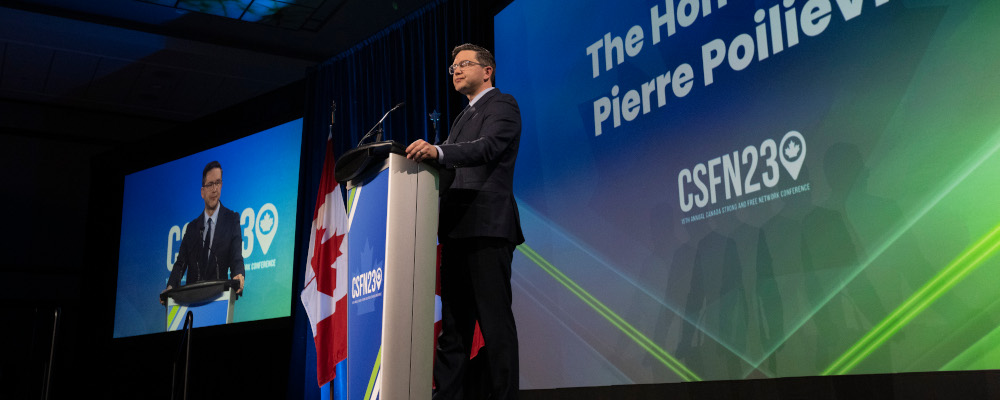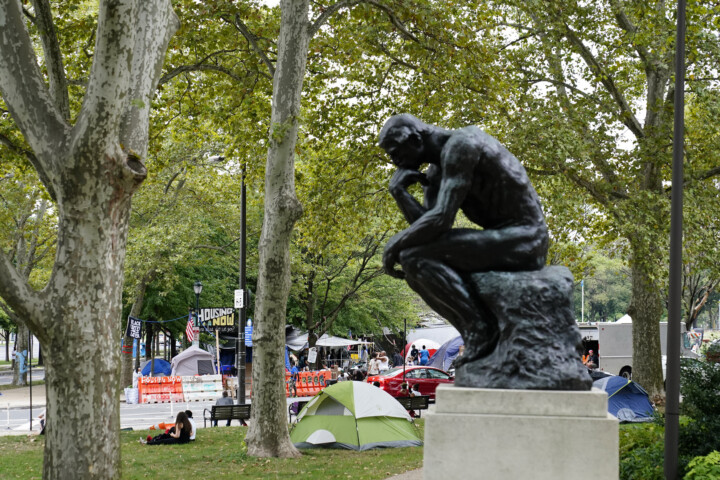Last week’s Canada Strong and Free Network conference in Ottawa brought expression to generational change within the world of Canadian conservatism. It may be the most under-reported yet significant development in our politics in the past several years.
The conference kicked off with a major speech by former Prime Minister Stephen Harper on what he described as the intuitions, insights, and accomplishments of “populist conservatism.” He was then joined on stage by Preston Manning for a fun and interesting conversation about the legacy of the Reform Party, including its humble beginnings and lasting influence on Canadian policy and politics.
Their exchange was by no means pure nostalgia. They discussed the lessons of the Reform Party’s model and approach to the current political moment, including, for instance, the role of issue campaigns and structural changes in the media landscape.
A key takeaway from me though was how young Harper was during this formative period in modern Canadian conservatism. He was just a graduate student when he came to Manning’s attention via the legendary University of Calgary economist Robert Mansell. He became the head of policy for the Reform Party and soon had a major role in speaking on behalf of the party in public settings and shaping its ideas and policy thinking behind the scenes. When he stood for election in the riding of Calgary West in 1988, he wasn’t yet 30 years old.
It’s a reminder that politics tend to be driven by the energy and enthusiasm of young people. The side of the ideological and political spectrum that finds resonance with younger voters tends to have an oversized influence over the political culture and the centre of the public policy debate. In 2015, young progressives helped Justin Trudeau and the Liberal Party climb from third place to government in a single election. There’s a good case today that the youthful tailwinds favour the Conservatives.
Recall that a December 2022 poll found Pierre Poilievre and the Conservatives outperformed the Liberals among 18 to 34-year-old voters by twenty-percentage points. It’s an extraordinary age-based dynamic that separates Canada from the politics in most other democracies such as Australia, the United States, and the United Kingdom.
One explanation is that Canadian Conservatives (and conservatives) have been more responsive to the needs, interests, and aspirations of younger voters in recent years. That was on full display at the conference.
The speeches and panel discussions involved a newer generation of conservative policy thinkers and activists (including Chris and Matt Spoke, Takdeer Brar, Paige MacPherson, and Renze Nauta) and the themes and topics were reflective of those animating younger Canadians, including housing, online freedom, competition, and the evolving experiences of the modern working class. One was left with the distinct impression that conservatives are increasingly outflanking progressives on issues concerning younger generations.
Pierre Poilievre’s keynote speech was a powerful expression of this burgeoning political development. Not only is he himself the youngest of the major party leaders, but with a young family of his own, he also seems more attuned and responsive to the challenges facing these voters. His speech hit on many of these themes such as housing, job precarity, and delayed family formation that one might broadly describe as symptomatic of the “failure to launch.”

It may not be a coincidence therefore that the conference attendees themselves reflected this generational change. There were many old Harperites including many former colleagues from the Harper government who were mostly there to hear from our former boss. But I was struck by the number of young people including the participants in the Canada Strong & Free Network’s Conservative Values Tomorrow program which provides mentorship and professional support to a cohort of young conservative activists and writers.
Many of them reminded me of myself roughly fifteen or twenty years ago. It’s exciting to see this generational transformation and the growing and positive influence of younger cohorts in conservative politics.
As I’ve written elsewhere, that transformation has happened underneath the noses of many pundits and mainstream journalists but has mostly gone unrecognized. The Conservative Shadow Cabinet is much younger than the Trudeau government’s own Cabinet. Its caucus contains dozens of MPs who are millennials or younger including Eric Melillo who was the youngest member in the past two parliaments. And provincial conservative governments across the country have millennials serving in senior Cabinet posts including education, environment, municipal affairs, labour, innovation and technology, and post-secondary education.
One wonders if these trends are interconnected. The youthfulness of conservative politics has become self-reinforcing. A critical mass of young elected Conservatives—what I’ve previously characterized as a Millennial Conservative Caucus—has tilted the party’s focus in the direction of a new set of issues and in turn that’s now drawing growing interest and support from younger voters.
Whatever the ultimate cause, it’s a healthy development for Canadian conservatism and our politics more broadly. At a time when the risk of intergenerational conflict is something that we ought to guard against, it’s important that younger Canadians see and hear themselves reflected in the policy debate.
It’s to the enormous credit of the Canada Strong & Free Network and its president Jamil Jivani that it’s become a place for these generational changes to manifest themselves. Even if it makes me feel old.
Recommended for You

Are Vancouver property rights really at risk? Law professor raises questions after federal government-First Nation deal in B.C.

Critical thinking is critical for society—so why have we abandoned it?

‘This is going to backfire on Iran’: Janice Stein unpacks the chaotic first few days of the war in Iran

‘A full-throated endorsement’: Why did Carney break with Europe and back the U.S.-Israel attack on Iran?




